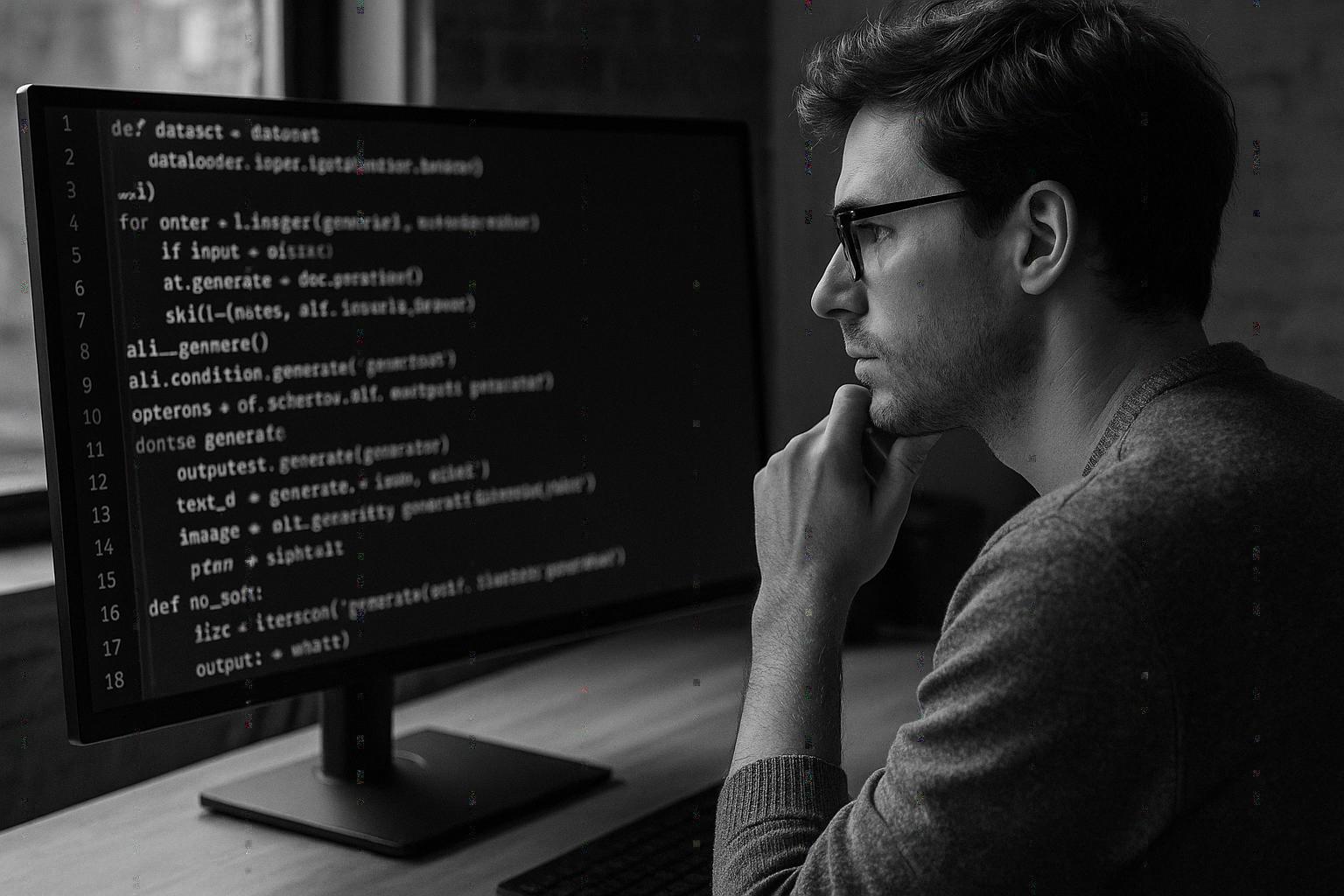The burgeoning field of artificial intelligence is rapidly transforming the software engineering profession, primarily through the advent of AI coding assistants that streamline software development by automating routine coding tasks. Often described in popular culture as enabling a style called “vibe-coding,” this approach allows developers to shift their focus from intricate syntax details to more strategic problem-solving and higher-level design. However, experts and developers caution that this term oversimplifies the depth of skill still required and prefer not to use it. According to Cat Wu, project manager of Anthropic’s Claude Code, the responsibility for code quality and safety ultimately remains in human engineers' hands.
At the forefront of this innovation is Anthropic, a significant player backed by Alphabet and Amazon, which recently launched Claude Sonnet 4.5. Anthropic boasts that this newest version is the “world’s best” AI model for coding and complex tasks, demonstrating substantial improvements in autonomous coding capabilities. Internal tests reportedly showed Claude Sonnet 4.5 could autonomously code for over 30 hours on a client project—a significant leap from the previous model’s seven-hour autonomous limit. These advances reflect broader trends across AI developers, including OpenAI and Google, who are in fierce competition to create the most effective AI coding tools. Gartner analyst Philip Walsh noted that coding remains the leading use case for large language models by businesses and that this is where AI providers are seeing the greatest traction.
Anthropic’s Claude Sonnet 4.5 is not only advancing autonomous coding but also improving in scientific reasoning and handling financial tasks, reflecting a broader versatility. The model scored 60% on operating system-related benchmarks, indicating robust performance in technical areas critical to enterprise applications. Microsoft has incorporated Anthropic’s technology into its Microsoft 365 Copilot suite, introducing advanced AI-assisted features across productivity tools like Excel and Word. This integration underscores a strategic move by Anthropic to prioritise long-term, reliable AI deployment over quick, flashy demonstrations, aiming instead to offer practical and sturdy tools to business users.
The rise of AI coding assistants is reshaping the software engineering landscape, with both established giants and startups competing intensely. The San Francisco Bay Area remains a hotbed for this innovation, hosting companies like OpenAI, Anthropic, GitHub, and a host of emerging startups such as Anysphere, Cognition, and Windsurf. Windsurf, for example, experienced rapid growth shortly after launching its AI coding assistant, attracting acquisition interest from OpenAI and Google. After Google recruited Windsurf’s founders and research team, the remaining company was absorbed by Cognition, highlighting volatility and rapid consolidation in this competitive market.
While AI tools like Claude, OpenAI's Codex, and others automate much of the repetitive and formulaic aspects of programming, experts maintain that these systems are complements rather than replacements for human developers. A Stanford study revealed AI now solves about 72% of coding problems, a dramatic rise from about 4% a year ago, impacting early-career job prospects in tech fields. Yet, many industry analysts argue that AI will increase demand for highly skilled engineers who can leverage these tools effectively, rather than diminish overall employment. Human oversight remains crucial in ensuring code quality, navigating complex problem-solving, and directing AI’s application toward intended outcomes safely.
Anthropic itself emerged as a leader partly due to internal adoption of its own coding AI. The company’s initial prototype, created almost by accident, quickly gained popularity within the organisation as a productivity booster. This internal “viral” success story fueled the company’s confidence to develop dedicated coding assistants like Claude Code and its subsequent advanced models. Today, about 39% of Claude users reportedly employ the AI primarily for coding purposes, underscoring the strong market demand for AI-driven software development tools.
In sum, while AI is reshaping software engineering by automating lower-level coding tasks and enhancing productivity, the technology remains firmly within a human-led process. As AI coding assistants grow more sophisticated and autonomous, the partnership between human creativity and machine efficiency appears set to define the future of programming. Companies like Anthropic are focused on delivering trustworthy, scalable AI that supports businesses with complex and sustained workloads, cementing AI’s role as a powerful collaborator rather than a replacement in the software development ecosystem.
📌 Reference Map:
- Paragraph 1 – [1], [4]
- Paragraph 2 – [1], [2], [3]
- Paragraph 3 – [2], [6]
- Paragraph 4 – [1], [4]
- Paragraph 5 – [1], [4]
- Paragraph 6 – [1]
Source: Noah Wire Services
